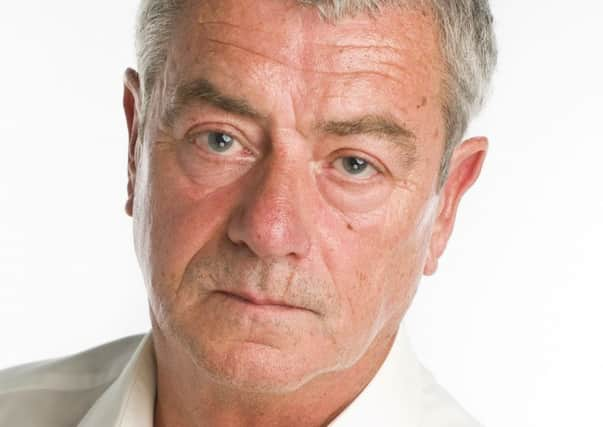Authorities told '˜wise up and act' over IRA lawyer Kieran Conway


Kenny Donaldson, spokesman for Innocent Victims United (IVU), said victims of terrorism are “losing further confidence in the criminal justice system” due to a lack of any visible efforts to pursue Kieran Conway for his past crimes.
Conway – who runs an eponymous “human rights” law firm in central Dublin – had written a book in 2014, revealing his past role in the IRA.
Advertisement
Hide AdAdvertisement
Hide AdThen last month the BBC’s HARDTalk show pressed him for exact details of what he did in the paramilitary group.
He responded by describing being present during IRA actions in which people died, and to planting half-a-dozen or so bombs.
Days after that interview was aired, Mr Donaldson (whose umbrella group represents 20 organisations with a combined membership of over 11,000 people) told the News Letter there was “sheer bemusement” at the failure to apprehend Conway.
Now he has said the seemingly ongoing lack of action is “beyond the comprehension of many people”, adding that many have concluded that the former senior IRA figure is “beyond the reaches of the law”.
Advertisement
Hide AdAdvertisement
Hide AdHe demanded that police forces on both sides of the border “confirm why Mr Conway has not been arrested and brought in for questioning”.
“How on earth can innocent victims and survivors of terrorism be expected to give any consideration to the legacy structures being proposed to deal with the past against a backdrop where self-confessed terrorists are seemingly immune from prosecution?” he asked.
He concluded that “both states need to wise up once and for all and begin the work of rebuilding confidence”.
Asked once again this week what is being done about his recent admissions, the PSNI Assistant Chief Constable Mark Hamilton, head of its Legacy and Justice Department, said: “We are currently examining everything that has been said by Mr Conway in order to ascertain what investigative opportunities will be progressed.
Advertisement
Hide AdAdvertisement
Hide Ad“Where appropriate, all actions will be considered if the evidence exists to do so.”
The Garda, meanwhile, said simply that they “would not be in a position to respond to statements made by third party organisations mentioning named individuals”,
When asked to comment, the Law Society of Ireland, which regulates solicitors, said only that it “cannot comment on any individual solicitor”.
Conway’s admissions in his 2014 book were widely covered in the media, including in the News Letter.
Advertisement
Hide AdAdvertisement
Hide AdHe admitted taking part in robberies, having a senior IRA intelligence role in the 1970s, and more.
An article in the Irish News in 2014 said that Conway had “refused to comment on how many people he had killed because ‘there is still a risk of prosecution’.”
But when pressed for details of his hands-on activities in the IRA during his HARDTalk interview last month, he said he had planted “not very many, maybe a half-dozen” bombs.
He added: “I did a lot more shooting, an awful lot more. Maybe about 100 times.
Advertisement
Hide AdAdvertisement
Hide Ad“British soldiers were killed on a number of occasions. Not very many, maybe five or six.”
He could not be certain his own shots killed them, he said.
When it comes to criminal convictions, an interview with him in last year’s autumn edition of the Dublin Solicitors’ Bar Association magazine states that in the early 1970s he was “caught in a safe house with a substantial amount of explosives and was sentenced to four years, as well as another three years for possession of firearms in his prison cell”.
It states that he served three years in prison, both in the Crumlin and Maze jails.
In the interview, he said that he viewed his sentence as very lenient.
The association’s interview adds that he left the IRA finally in 1993 in protest at moves towards a peace settlement.